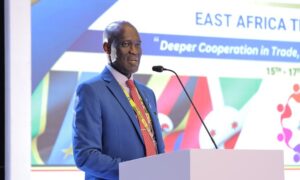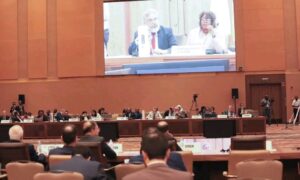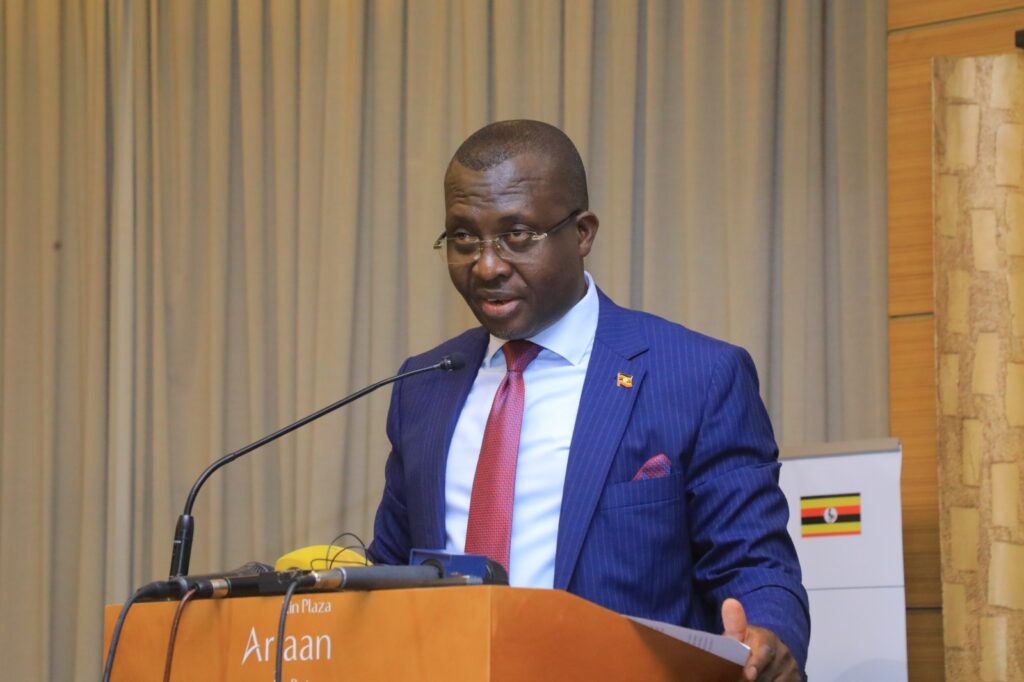
Hundreds of delegates have arrived at the Speke Resort Munyonyo to attend the 19th Non-alignment movement (NAM) summit which begins today Monday 15th, January 2024.
Over 40 Heads of State and Government of Non-alignment Movement (NAM) from the 120 member countries have sofar confirmed their attendance.
The theme for the Summit is “Deepening Cooperation For Shared Global Affluence.”
According to Hon. John Mulimba, the State Minister for Foreign Affairs, the summit will provide a unique opportunity for Uganda to be at the center of global affairs as well as support and promote the interests of developing countries.
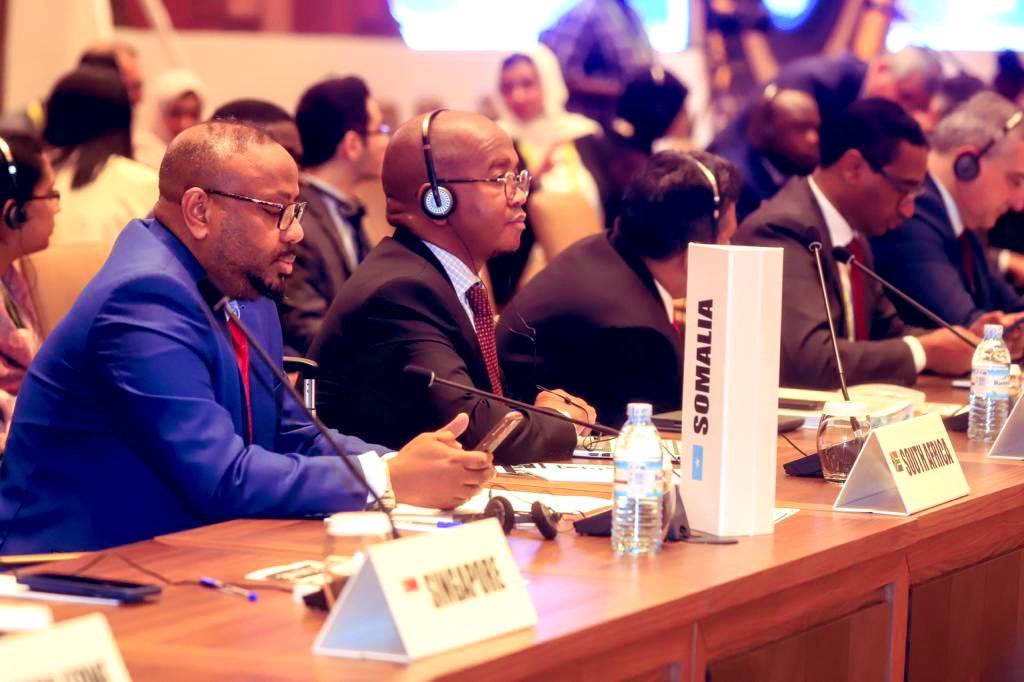
“The vision for Uganda will be a stronger and united NAM that contributes to a better and stronger world for all,” Mulimba said.
Mulimba said the choice of the theme was based on the fact that some issues had emerged worldwide, which require the engagement of group members.
ABOUT NAM
The Non-Aligned Movement has its origins from what has been referred to as the first large-scale Asian–African or Afro–Asian Conference, held on 18th– 24th April, 1955. It is popularly known as the Bandung Conference (taking on the name of the City where it was held – Bandung, Indonesia). The Conference was attended by delegations from twenty-nine (29) governments, mostly from Asia – owing to the fact that most of present-day African states were still under colonial control.
The Bandung Conference was convened to discuss peace and the role developing countries in the face of the raging cold war, as well as economic development and the decolonization of countries under colonial occupation. In other words, Bandung was convened out of a desire by the convening countries not to be involved in the East-West ideological confrontation of the Cold War, but rather to focus on national independence struggles and their economic development.
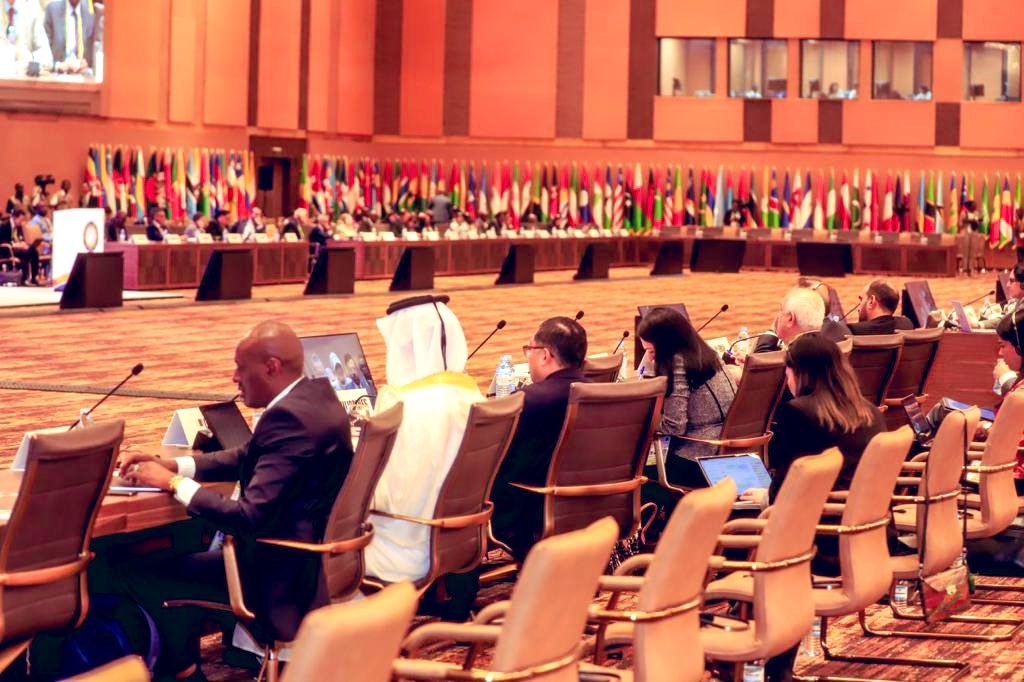
In 1961, drawing on the principles agreed at the Bandung Conference, the Non-Aligned Movement was formally established at the First (I) Summit held on 1st – 6th September, 1961 in Belgrade, Yugoslavia. The twenty-five (25) countries that attended the First Summit were: Afghanistan, Algeria, Burma (Myanmar), Cambodia, Ceylon (Sri Lanka), Congo-Leopoldville (DRC), Cuba, Cyprus, Egypt, Ethiopia, Ghana, Guinea, India, Indonesia, Iraq, Lebanon, Mali, Morocco, Nepal, Saudi Arabia, Somalia, Sudan, Tunisia, Yemen and Yugoslavia.
Today, the work of NAM has been guided by the Bandung Principles – which caters mostly for the Movement’s political agenda. Over the years, however, economic cooperation and social and humanitarian issues have become central to the work of NAM.
Since has its founding, in line with the principles of the United Nations Charter, NAM has been instrumental in championing international peace and security. Its Members have been a strong voice in the calls for: nuclear disarmament and the establishment of nuclear free zones; condemning and fighting terrorism in all its forms and manifestations; and supporting United Nations’ efforts towards peacekeeping and peace building. NAM also played a important role in leading international efforts towards addressing the effects of the Covid-19 pandemic for a steady global recovery.
Unlike other regional and international organizations, such as the United Nations or the African Union, NAM neither has a formal founding Charter, Act or Treaty, nor a permanent secretariat. Coordinating and managing the affairs of the Movement, therefore, is the responsibility of the country holding the Chairmanship.





